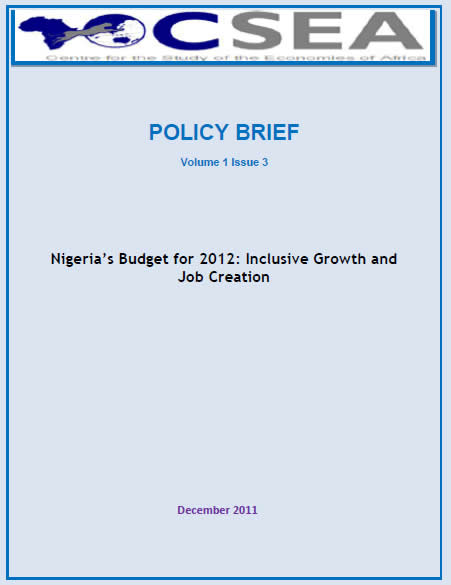Publication Date:December, 2011
Volume Number:1 Issue 3
Document Size: 5 pages
On December 13, 2011, the president presented the FY2012 budget to the jointsession of the national assembly. The budget entitled Budget of FiscalConsolidation, Inclusive Growthand Job Creation is anchored on 4 main pillarsnamely: macroeconomic stability, structural reforms, governance andinstitutions, and investment in priority sectors in line with the overalltransformation agenda of the administration. The budget clearly identified andaddressed key structural and institutional challenges that have been militatingagainst the achievement of inclusive growth and employment generation. Therevenue forecast is N3.644trn while planned expenditure is N4.749trn, implyinga deficit of N1.105trn or 2.77% of GDP. This deficit level is lower than the 2.96%recorded in 2011 in line with the Fiscal Responsibility Act 2007, and showsgovernments commitment to fiscal discipline. However, the size of the deficitmay increase if the National Assembly decides to add fuel subsidy to the budget.

